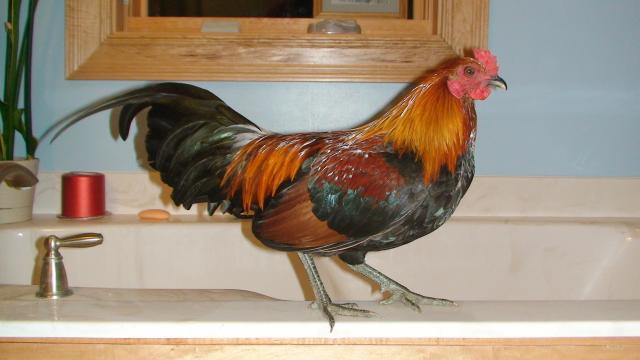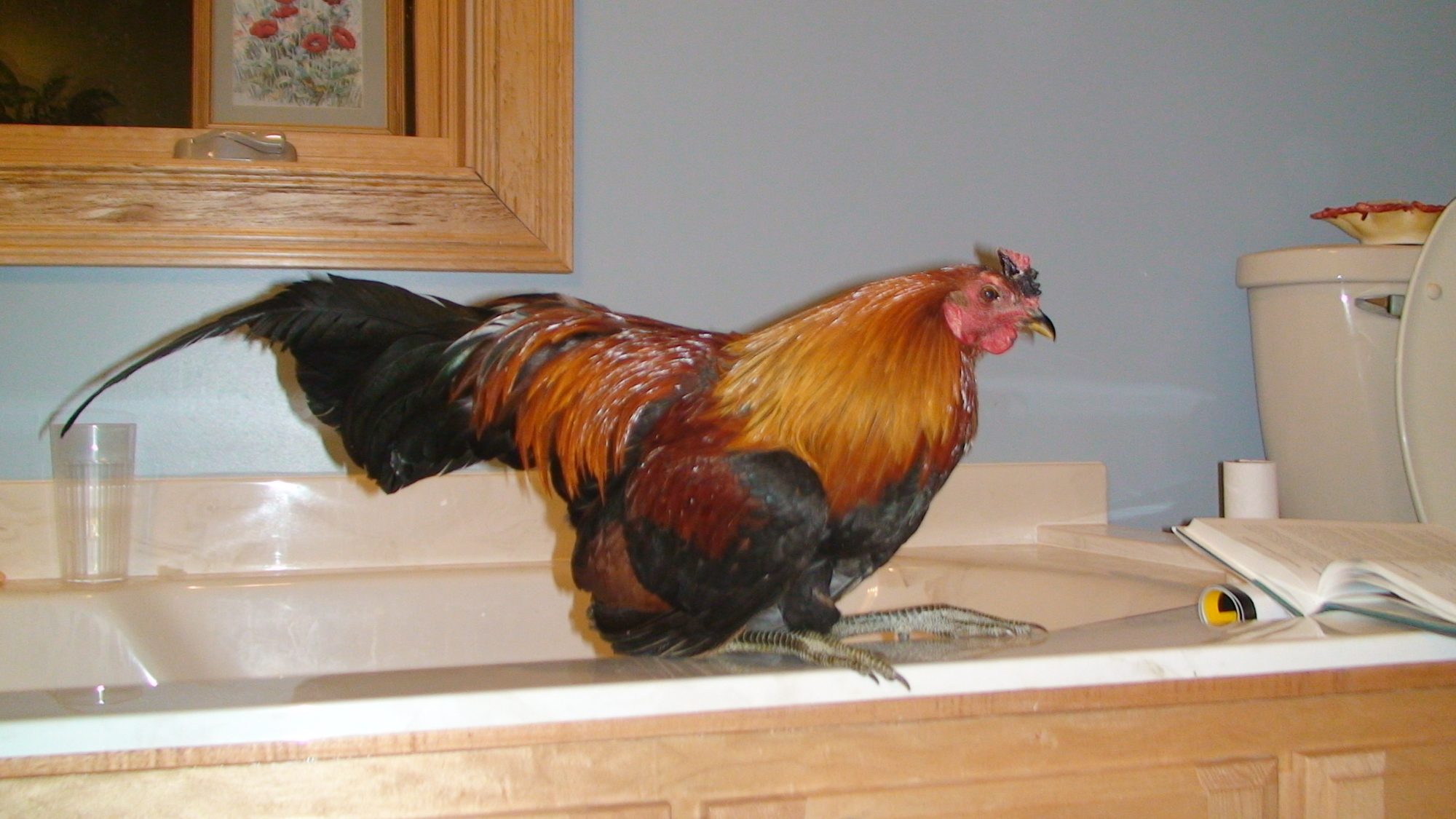I have had a small percentage of my birds come down with what I suspect is Mareks disease. All but one has been put down. Remaining bird is being maintained since it still retains some value as a display bird. A coop will be set up the physically challenged since bird in question is unable to fly and has reduced walking ability. Free-range keeping is no longer an option since he would even be able to evade an oppossum during daylight.
Bird (cockerel April 2011 hatch) in question is a first generation hybrid between a red jungle fowl hen and an American game rooster. I am already babying him nutritionally and he has shown modest improvement in motor skills since worst. He has been affected visibly for about a month.
Before infection.

Present showing reduced walking / standing ability.

Anyone ever keep a Mareks infected bird long term?
Bird (cockerel April 2011 hatch) in question is a first generation hybrid between a red jungle fowl hen and an American game rooster. I am already babying him nutritionally and he has shown modest improvement in motor skills since worst. He has been affected visibly for about a month.
Before infection.

Present showing reduced walking / standing ability.

Anyone ever keep a Mareks infected bird long term?


